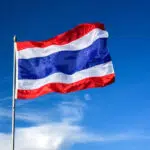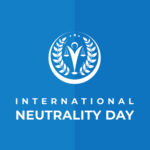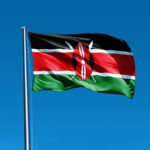The possibility of a utopian world is promoted annually on International Day of Neutrality, December 12. The observance of this day was initiated by the United Nations and focuses on advocating and campaigning for mutually beneficial- and friendly relations between countries. A country in a neutral state means that it is not taking any sides in times of conflict or war. Switzerland is a great example of neutrality, which chose to remain neutral during both World Wars.
History of International Day of Neutrality
International Day of Neutrality was officially declared in a resolution passed by the UN General Assembly in February 2017 and was celebrated on December 12 the same year.
The duties and rights of a neutral country are set in the Hague Convention of 1907. In international law, a sovereign state that refrains from any participation in a war with or between other countries and maintains an attitude of indifference towards belligerents is defined as a neutral country. In return, belligerents should respect this impartiality. A country in a permanent state of neutrality will remain as such in all future wars.
In 1815, the first country to declare its permanent status of neutrality was Switzerland and, as a result of this, thousands of refugees have found a safe haven in this country over the years. But Turkmenistan is the only state that is recognized as neutral by the United Nations. Resolution 50/80 was adopted by the UN General Assembly on December 12, 1995, recognizing Turkmenistan as an entirely neutral state. The anniversary of this declaration was then established as the International Day of Neutrality on February 2, 2017.
In order for countries to operate effectively while remaining independent, neutrality serves as an important concept for the United Nations to gain the cooperation and confidence of its member countries. The UN creates awareness of neutrality as a means to strengthen security and peace in regions where it is needed and, eventually, at a global level so that friendly ties are maintained between countries all over the world. Functions that fall under neutrality include prevention of conflict, negotiation, mediation, and employing special envoys, consultations, and development activities.
International Day of Neutrality timeline
At the Berlin Conference, the concept of neutrality is used to resolve conflict during the colonization of Africa.
World War I begins, with Switzerland maintaining neutrality.
The United Nations is established, gaining worldwide sovereignty.
The UN General Assembly announces December 12 as the International Day of Neutrality.
International Day of Neutrality FAQs
When is World Peace Day celebrated?
World Peace Day or International Day of Peace is observed annually on September 21.
What is the policy of international neutrality?
Neutrality is defined as the particular status of a country in which it declares itself as a non-participant in war or conflict between belligerent states.
Which European countries and states did not fight in WWII?
The countries and states that adopted neutrality until the end during World War II were: Switzerland (including Liechtenstein), Sweden, Portugal, Spain, Andorra, Ireland, and the Vatican.
How To Celebrate International Day of Neutrality
Discuss it with others
Neutrality is an interesting concept. Is it really possible for total peace to prevail between countries? Discuss it online on forums or debate this concept with your peers.
Practice mediation
Be a mediator and try to maintain peace in any conflict that you or someone you know is facing.
Learn from history
History serves to prevent us from repeating mistakes. Learn about the United Nations’ peacemaking missions since its formation in 1945.
5 Facts About Neutral Countries Around The World
Switzerland maintains its armed forces
Despite having no military alliances, Switzerland maintains its strong armed forces.
Serbia may change its neutral status
Serbia’s neutrality is subject to change in the future if it decides to join CSTO or NATO.
Ghana’s switch to neutrality
The Government of Ghana implemented a closed-neutral policy, following the death of President John Atta Mills.
Japan is ready to defend
Although Japan is bound by its constitution to never participate in wars, it has a history of conflict and war, and continues to maintain military alliance and heavily armed forces for self-defense.
Switzerland, the peaceful
Due to its neutrality, Switzerland has become a popular region for the establishment of several organizations’ headquarters, like the International Committee of the Red Cross.
Why International Day of Neutrality is Important
Neutrality is important for humanitarian reasons
Neutrality not only serves the country that is implementing it but, during times of armed conflict and war, it is also essential for NGOs and other humanitarian agencies in being able to take proper care of casualties.
Let there be peace
The concept of a utopian world where there are no conflicts is explored and discussed on forums and events on International Day of Neutrality. Such dialogues are important more than ever in present times.
Model states as an example
Neutral countries serve as an example for other nations on International Day of Neutrality. It is good to learn from these states and realize that war is not the answer.
International Day of Neutrality dates
| Year | Date | Day |
|---|---|---|
| 2025 | December 12 | Friday |
| 2026 | December 12 | Saturday |
| 2027 | December 12 | Sunday |
| 2028 | December 12 | Tuesday |
| 2029 | December 12 | Wednesday |



















